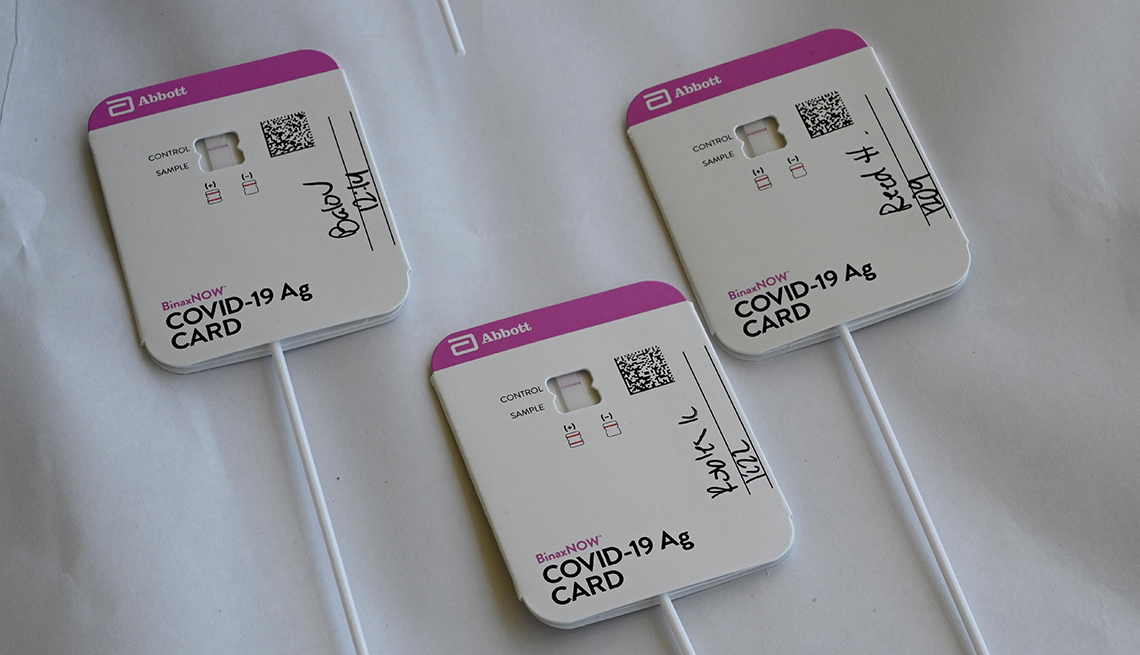
Why rapid at-home covid-19 tests are hard to find
- Select a language for the TTS:
- UK English Female
- UK English Male
- US English Female
- US English Male
- Australian Female
- Australian Male
- Language selected: (auto detect) - EN
Play all audios:

Ellume, whose COVID-19 home test delivers results digitally, told Bloomberg that it is also scaling-up production. And CVS wrote in an email to AARP that it is continuing to work with its
suppliers to meet customer demand. TESTING IS STILL KEY TO HELPING SLOW COVID’S SPREAD With so much of the attention on vaccines these days, coronavirus testing can feel so 2020. But experts
say that along with other preventive measures it’s still important when it comes to slowing the spread of disease, particularly when nearly half of the U.S. population remains unvaccinated.
And home testing can play “a valuable role” in this strategy, Vermund says. With cold and flu season on the horizon, “there’s going to be more situations where people are experiencing some
symptoms that might be concerning for COVID-19 or influenza,” Binnicker says. “And so being able to quickly and easily perform a test at home is desirable and will become more of interest as
we move into the next two, three, four months.” In addition to cluing you in on whether your sniffles could be cold- or COVID-related, quick at-home tests can also be used as a way to
navigate risk in certain situations — even for people who are fully vaccinated — like visiting a friend who is immunocompromised. The rapid home-based tests, known as antigen tests, are
considered less sensitive than PCR tests, and they can miss a positive case if the person infected has low levels of virus in the nose. “But it will catch the most infectious individuals.
And they’re the ones who are the most important to catch anyway,” Vermund says. So testing negative on one of these tests before visiting someone who is immunocompromised, for example,
“would at least tell that individual at that point in time [they are] not shedding really high amounts of the virus” and their chances of transmitting the virus to the person they’re
visiting is “going to be lower versus if [the test is] positive,” Binnicker says. You’ll want to reschedule your visit if you get a positive result. And let’s not forget about group events:
“There’s an increasing trend” for organizers of large gatherings — weddings, concerts, conferences and reunions — to ask everyone, including vaccinated people, to test themselves ahead of
time to “be on the safe side,” Vermund says. That said, it’s crucial to know that a negative test result, home-based or otherwise, isn’t a “free pass” to abandon other precautionary
measures, Binnicker warns. It’s “really just one kind of mitigation step in our toolbox of helping to reduce risk of spreading COVID-19,” he adds.
